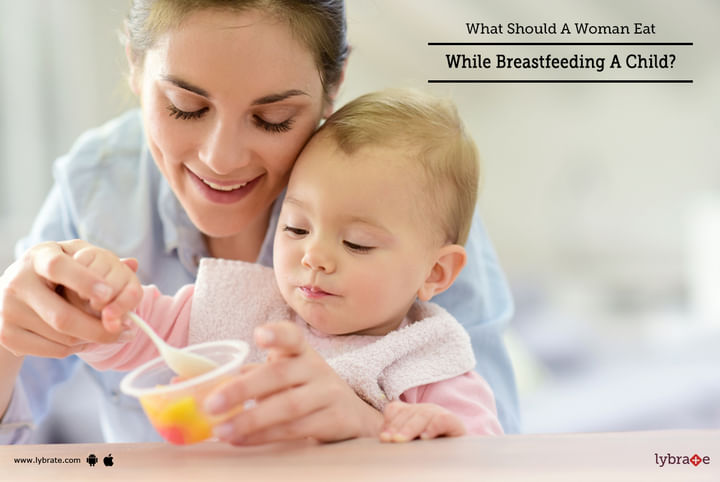What Should A Woman Eat While Breastfeeding A Child?
Breastfeeding is widely recommended by healthcare professionals because it has numerous benefits for both the mother and her baby. Like every year, this year too, we are celebrating World Breastfeeding Week (1st August-7th August). The World Health Organization(WHO) organise this week to emphasise the importance of breastfeeding.
But simply realizing the need for breastfeeding won’t do. The mother’s diet is of paramount importance. What she eats determines the quality of her milk. Without a carefully planned diet, both she and her child could suffer a nutritional deficiency.
Foods that a nursing mother must consume
When you breastfeed you will need a greater portion of all the nutrients that keep your body working. Here are a few basics of breastfeeding diet-
- You need calories
- You may not want to consume calorie-dense foods because you want to lose pregnancy weight, but producing breast milk takes a toll on your body. Generally, lactating women need an additional 500 calories every day. Insufficient calorie intake could lower milk production and also leave you drained.
- Foods you need for this purpose are- dairy products, beans, avocados, sweet potatoes, fatty fishes, nuts and whole grains.
Particular nutrients that your body needs
Breast milk nutrients can be of two types-
- One group will only be present in human milk if the mother consumes these through her diet. The mother needs these nutrients for the baby.
- Another group that her body will include in breast milk even if she isn’t getting enough of them through her diet. The mother needs these nutrients for herself.
1st group of nutrients and their sources-
- Vitamin A- carrots, leafy green vegetables, sweet potatoes, eggs
- Thiamin- brown bread, nuts, meat, fish and seeds
- Riboflavin- Fatty fish, eggs, cheese, nuts
- Vitamin B6- bananas, all dried fruits, fish, nuts, seeds
- Vitamin B12- poultry, meat, fish, mushroom, seaweed
- Choline- fish, peanuts, beans, poultry
- Vitamin D- fatty fish, eggs, mushrooms
- Iodine- iodized salt, milk, seaweed
- Selenium- sea fishes, seaweed, seeds, whole grains
When you take these nutrients in sufficient quantities, your milk will be loaded with them.
2nd group of nutrients and their sources
- Calcium- dairy products, green leafy vegetables, legumes
- Folate- lentils, avocados, beans, green leafy vegetables
- Copper- whole grains, beans, potatoes, meat
- Iron- pomegranates, poultry, beans, red meat
- Zinc- dairy products, beans, poultry
Unless you get enough of the nutrients from the 2nd group, then they will be extracted from your own body to produce milk and soon you experience problems associated with their deficiency.
In between your meals, if you feel hungry, get yourself a healthy snack such as
- A fruit
- A handful of nuts
- Brown bread sandwich with cheese, cucumber, tomatoes and eggs
- Yoghurt with berries
- Dark chocolate
- A small piece of cheese
Breastfeeding is crucial for your baby’s long-term wellbeing. It can also protect you from many illnesses. But make sure that you are eating right or the two of you won’t be able to reap the benefits of nursing.



+1.svg)
